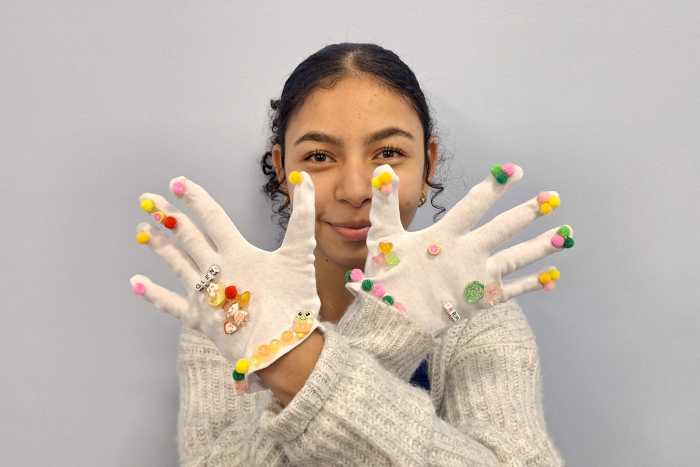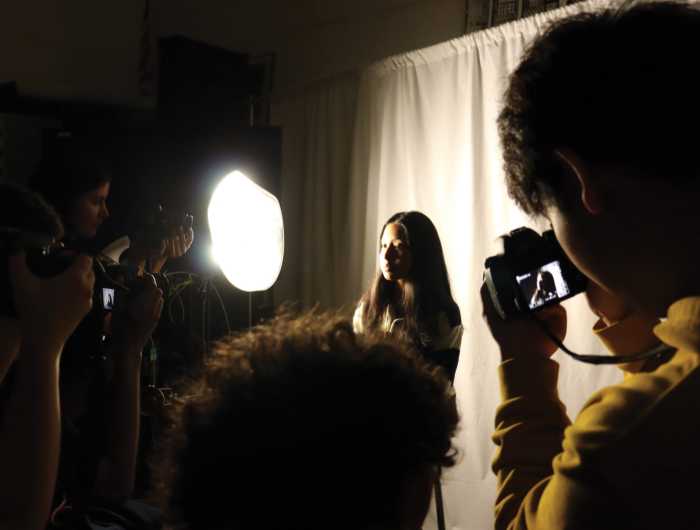Walk down the street and you’ll probably see multiple strollers with babies holding iPhones or children playing with tablets, while parents chat or just take a much-needed break. Then there are preschoolers who are mesmerized in front of the television screen for hours while mommy cooks dinner or tends to other children. When it comes to screen time and preschoolers, it’s hard to ignore all of the devices around you. Let’s face it, some provide proper learning tools, but in some cases, they just make easy babysitters.
“If you’re giving a preschooler a cell phone to play and be quiet, it does not sound like a good use of media because, at that age, kids need lots of real world experiences and interactions with parents and other loving caregivers,” says Michael Robb, director of research at Common Sense Media, an independent nonprofit organization dedicated to helping kids thrive in a world of media and technology.
Other Factors
Parents know that it’s not always easy to monitor their preschooler’s screen time, especially when others are involved in their daily care.
Rose Tavolacci-Martin’s 4-year-old daughter Carlie is limited to one hour per day of screen time, but Rose gets annoyed when grandma visits and the rules are broken. “I subscribe to ABC Mouse and she loves You Tube kids, but we monitor her,” says Tavolacci-Martin, a Yonkers schoolteacher and resident. “However, I work a second job and get annoyed when I see her on the phone or tablet when I get home.”
For some preschoolers, a tablet or other screen device is a welcome addition to the day, but for unexpected reasons. Jodie De Crescenzo lets Jimmy, her non-verbal 3-year-old autistic son, use a tablet. “He takes it everywhere with him; it’s his speech device, so modern technology has its good points,” says De Crescenzo, an Ossining resident. “For us, it gave our son a voice. Everything in moderation does no harm. These devices are so much more than YouTube and games.”
Time Spent
They might be more than YouTube and games, but how much time should your child have on the devices?
“It really depends on the age of the child, what they’re using, and how they’re using it,” says Robb. “There are TV shows that are made for 2-year-olds and 4-year-olds and 5-year-olds. For example, Daniel Tiger’s Neighborhood is a wonderful show for a young preschooler because it has a really good curriculum about social and emotional learning, how to manage feelings and how to be a good friend. It’s paced and has the language level that is really understandable to a young child.”
He’s also a parent and makes sure to sit with his 6-year-old and 4-year-old children when they are watching television or playing games. “When I can’t, I ask them about what they’re doing,” he says. “We also don’t allow devices at the table, but we talk about what they watched or played. We ask them how they beat a level. That’s great because you’re getting your kid to tell you about something that they really enjoy, and it should come as no surprise to parents that kids like talking about media.”
The American Academy of Pediatrics says that it’s a good idea to create a balanced media diet and it discourages any kind of media use, except for video chatting, in kids who are younger than 18 months.
“Families should proactively think about their children’s media use and talk with children about it, because too much media use can mean that children don’t have enough time during the day to play, study, talk, or sleep,” says Jenny Radesky, MD, FAAP, in a statement, “Media and Young Minds,” which focuses on infants, toddlers and preschool children.
Robb says that you can’t treat all screen time equally. “Think about what you’re choosing for your child, how it engages your kid, and think about how you can maximize your kid’s time with media by being with them and talking to them about what they’re seeing and hearing,” he says.
This isn’t just about handing a child a device either. If you’re cooking dinner and the television is on, your child is exposed and, in many cases, staring at it. “Studies show that background TV significantly affects active play or pretend play,” says Richard Peterson, VP of Education at Kiddie Academy. “Make it a point to turn the TV off when no one is actively watching it for a specific purpose. Try turning on the radio instead.”
Many parents often use technology as a reward for doing something else. Peterson suggests changing that. “Don’t use technology as a reward for playing outside,” he says. “Playing outside is its own reward and the goal is to limit screen time, not ultimately increase it.”
In the Classroom
In addition to screens at home, on the playground, at other friends’ homes and, of course, with grandma and grandpa, screen time can also be found at some preschools.
A small sampling of Westchester preschools found that some, who didn’t want to be mentioned, use screens for what they called a small dose of time during their curriculum, but wouldn’t elaborate. Others, such as Prospect Academy of Westchester in White Plains, doesn’t use screen time at all, stating that they must comply with the rules and regulations of the New York State Office of Children and Family Service, which state that use of any type of television, phone or other digital devices are not permitted.
If your child’s preschool sneaks in screen time, don’t worry. “Screen time is not monolithic, so just because they do one thing at school does not mean they’re going to do something similar at home,” says Robb. “When they use it in preschool, it should be well-aligned with the teacher’s learning goals and well thought out and part of a learning plan.”
Robb says that parents also don’t need to limit or eliminate devices just because it’s used at school. “However, I’d be really thoughtful about what it is that they should be doing and making sure that they’re doing the other things that I know are important first,” says Robb. “Make sure they’re eating well, sleeping well, playing and socializing with friends. If they’re doing all of that stuff, I’m not worried as much about counting every single screen minute.”
Lisa Iannucci is a freelance writer who was born and raised in Yonkers. Her most recent book, On Location: A Film and TV Lover’s Travel Guide, by Globe Pequot Press is now available through Amazon, Barnes and Noble and other bookstores.
What to Watch?
Common Sense Media, an independent nonprofit organization dedicated to helping kids thrive in a world of media and technology, provides information on media and children and a list of television shows appropriate for preschoolers at commo













